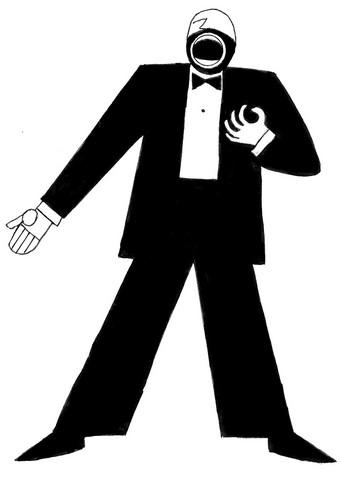I caught two more Tanglewood concerts this weekend - Friday with BSO, Ingo Metzmacher and Matthias Goerne doing Mahler's "Des Knaben Wunderhorn" songs and Stravinksy's "Firebird" suite and Sunday morning with a program of contemporary music at Ozawa Hall featuring my former teacher William Sharp.
Goerne was as good as the last time I saw him a few years ago, and I enjoyed hearing him with a full orchestra (he was miked up though since it's an outdoor space...). He's such a dynamic and interesting performer and breaks all of the recital rules that I discussed in my last post. Goerne (and Ian Bostridge now that I think about it) kind of propel themselves around the stage, letting the music take them. My impression of Goerne is that he looks like a boxer, with his movement, his sturdy build and his strange habit of touching his nose before phrases. He is such an original artist that he does not need to worry about "spots on the wall" or addressing the audience; he simply does what the music tells him to do at any given moment. It doesn't hurt that he is a brilliant vocal colorist with a beautiful mixed voice and the ability to sing a smooth and purposeful musical line. That's really what's going on here: he is able to achieve all of his artistic objectives vocally, so why worry about the physical stuff?
I also enjoyed the Stravinsky - the BSO seems to be having some sort of Stravinsky mini-fest this summer. I like "Rite of Spring" better than "Firebird" but you can already hear the rhythmic impetus and instrumental coloring that form the core of the later work. The orchestra sounded a bit rougher this week, which could have been due to a number of reasons.
Sunday's concert was terrific. It featured pieces by Steven Mackey, George Perle, Yehudi Wyner and Nicholas Maw, all of whom were in attendance. The performers were student fellows at the Tanglewood Music Center. I think the presence of the composers drove the performers to travel that extra mile and it was a pretty exciting atmosphere. Mackey had two pieces on the program, a new piece called 'Gathering' and an older piece entitled 'Indigenous Instruments'. Unfortunately I couldn't really hear the first piece as we were a bit late and I was oustide waiting to take my seat. What I could hear I liked, as it featured the unusual instrument combination of trombones, harp, marimba and two female singers. The second piece, which closed the program, is a kind of imagined world music which featured unusual tunings and instrumental effects to create something odd-sounding. It was very creatively done and vibrantly played by the student musicians. The Perle piece, 'Critical Moments 2', featured some pretty kick-ass percussion writing and was made up of a series of intense short pieces. The instrumental colour and rhythmic drive made it very exciting to listen to. The Wyner was a virtuosic duet for clarinet and piano and the interplay between the two performers was great to watch. My favourite piece was probably the Maw (a Peabody composition prof) which featured my former teacher William Sharp. The text was by Robert Browning and the scoring was for voice, flute, harp and viola. It is a seamless text setting which ebbs and flows with the emotions of youthful love present in the poem. Maw is a natural vocal composer and the score featured moments of Romanticism but with colourful modern harmonies. Mr. Sharp was masterful, and the architecture and beauty of the text really came through. His voice blended very well with the student musicians and there were many moments of intense beauty. It's definitely a piece I would enjoy hearing again.
I'm so glad I've had a chance to get to Tanglewood a few times this summer, it really is one of America's musical treasures and is a hotbed for young talent. It almost made me want to apply to be a TMC fellow sometime in the future...
Link

